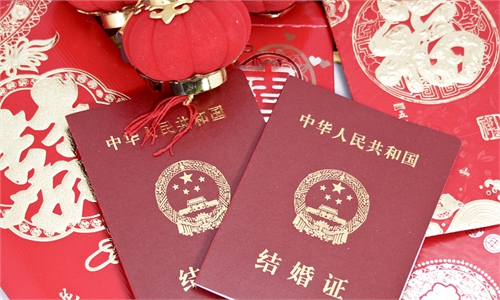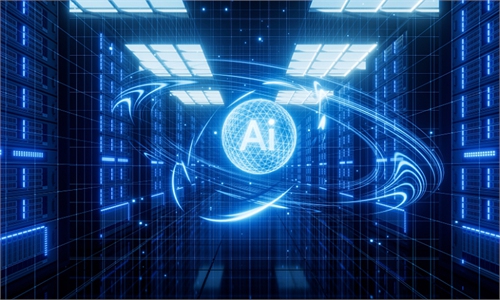China's tech hub Shenzhen releases ‘vouchers’ to support AI research and development

AI Photo:VCG
Shenzhen, China's tech hub, announced a series of measures on Wednesday that include the provision of "vouchers" respectively for research and development of artificial intelligence (AI) models, and AI training and corpus, with vouch for model training up to 500 million yuan ($68 million) annually for enterprises.
According to the Several Measures for Shenzhen to Build a Pioneer City of Artificial Intelligence, released by the Shenzhen Municipal Industry and Information Technology Bureau, it serves to "build the national new generation of AI innovation and development pilot zone and the national AI innovation and application pilot zone, and build an AI pioneer city."
For "AI model vouchers," the measures said it will issue an annual maximum of 100 million yuan for enterprises to reduce the application costs.
For enterprises that provide model services and develop applications based on generative AI models registered with the National Internet Information Office, those that reach a certain scale and demonstrate good results may receive funding of up to 2 million yuan, not exceeding 30 percent of the model purchase costs.
An annual maximum of 500 million yuan in "training vouchers" will be issued to reduce the research and training costs of AI models.
For enterprises, higher education institutions and research institutions that rent intelligent computing power for large model training, a subsidy of up to 10 million yuan will be provided, covering no more than 50 percent of the service contract amount. For startup companies, the subsidy ratio will be increased to 60 percent, the measures said.
In addition, an annual maximum of 50 million yuan of "corpus vouchers" will be issued to promote the open sharing and trading of corpora, and to advance the construction of a data element market.
The measures also support the actual application of AI products. Companies that achieve a certain sales volume for annual best-selling products, including AI computers, AI smartphones and smart wearable devices, will be awarded up to 3 million yuan.
The city of Shenzhen has been at the forefront of AI, driving the development of new quality productive forces. In the context of China-US technology competition, the city has taken the lead in supporting the emergence of industrial examples in the field of AI, Liu Wei, director of the human-machine interaction and cognitive engineering laboratory with the Beijing University of Posts and Telecommunications, told the Global Times on Wednesday.
"The goal is to achieve tangible and visible AI applications for everyone. In essence, the Shenzhen move aims to accelerate this process," Liu said.
After China's artificial intelligence has experienced a "war in competing for AI models," "price war" and fierce technology competition in 2024, the AI development next year in China will be more focused on applications, Yin Zhi, chief consultant from Shanghai Artificial Intelligence Technology Association, told China Enterprise Journal.
Liu told the Global Times some AI models from US companies exhibit various illusions and unreliable features, indicating that there are still huge opportunities for Chinese AI enterprises to take up the market share.




